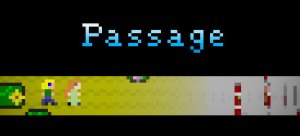 I’ve spent the last five Christmas Eves having dinner with a table full of people speaking a language I don’t understand. My partner was born and raised in Canada, but her parents were born and raised in Warsaw, Poland, leaving several decades ago when the country was still under the thumb of the USSR. She, her brother and her cousins are (frustratingly, perfectly) multilingual while I only speak English fluently and can somewhat passably read and understand spoken French. At Christmas family gatherings with only two or three others who can’t speak/understand Polish it’s only natural that conversations eventually shift away from English. The older members of the family are most comfortable speaking in their first language after all and, especially after several bottles of wine and vodka have been emptied, their usual consideration for including everyone in every conversation starts to dissipate. The first year I came to the big Christmas Eve dinner I felt extremely awkward because of this. I imagine a lot of people surrounded by a language they don’t understand get to wondering what the hell is being said and, most anxiety-inducing of all, if they’re being talked about without understanding it.
I’ve spent the last five Christmas Eves having dinner with a table full of people speaking a language I don’t understand. My partner was born and raised in Canada, but her parents were born and raised in Warsaw, Poland, leaving several decades ago when the country was still under the thumb of the USSR. She, her brother and her cousins are (frustratingly, perfectly) multilingual while I only speak English fluently and can somewhat passably read and understand spoken French. At Christmas family gatherings with only two or three others who can’t speak/understand Polish it’s only natural that conversations eventually shift away from English. The older members of the family are most comfortable speaking in their first language after all and, especially after several bottles of wine and vodka have been emptied, their usual consideration for including everyone in every conversation starts to dissipate. The first year I came to the big Christmas Eve dinner I felt extremely awkward because of this. I imagine a lot of people surrounded by a language they don’t understand get to wondering what the hell is being said and, most anxiety-inducing of all, if they’re being talked about without understanding it.
The next year it seemed a bit better. I knew these people, had grown more comfortable drinking my wine and sort of drifting out when the conversations turned to Polish. The Christmas after that I barely noticed a thing and now, all these years and several failed attempts to learn the language (it is goddamned impenetrable, but I’ll keep trying until I die) later, I find that I can follow the gist of my in-laws’ Polish dialogue despite only recognizing a handful of words. It is possible to intuit the rhythm of a sentence, to understand how changes in tone and volume communicate a joke or sarcastic remark without a proper understanding of the complexities of the language. This is, I think, a common phenomenon. In lieu of properly interpreting a language, those regularly surrounded by it will at least learn to “feel” how it works.
By the end of two hours with Journey a similar thing had happened.
Continue reading Journey, Abstraction and the Invention of Language →
 OK, check this out. Something that shouldn’t be mind-blowing, but, considering the state of recent videogame discourse, maybe (unfortunately) will be to some readers: I’m a straight male and, despite being adverse to self labelling, comfortably identify as a feminist. That proclamation changes nothing about how I’ve always thought and lived.
OK, check this out. Something that shouldn’t be mind-blowing, but, considering the state of recent videogame discourse, maybe (unfortunately) will be to some readers: I’m a straight male and, despite being adverse to self labelling, comfortably identify as a feminist. That proclamation changes nothing about how I’ve always thought and lived.







